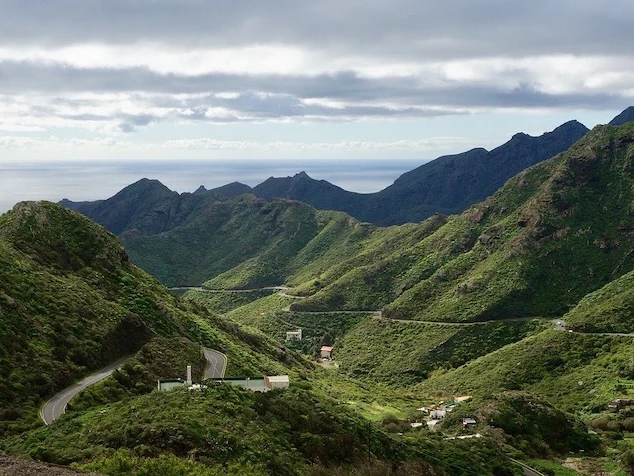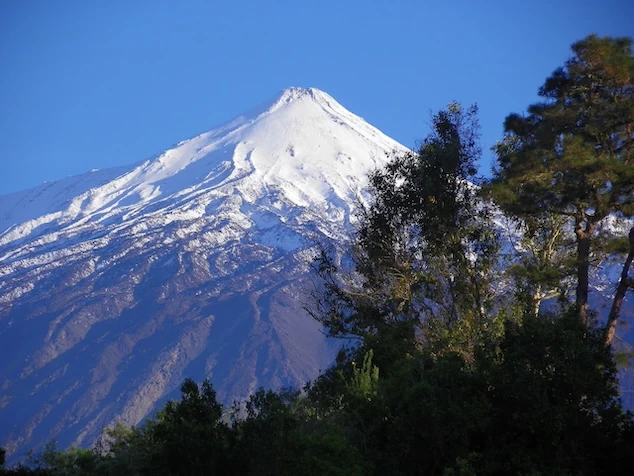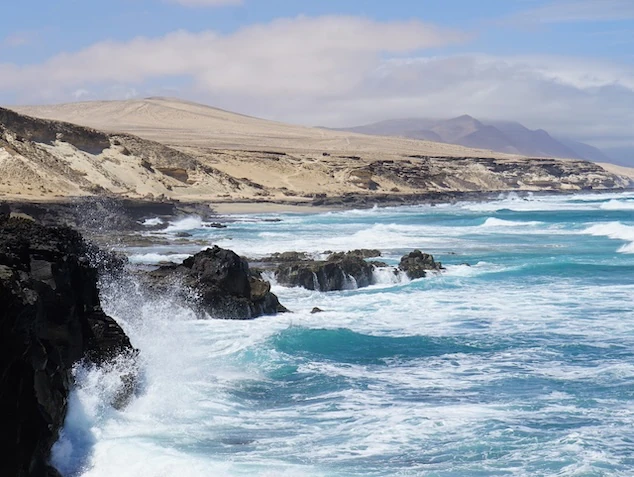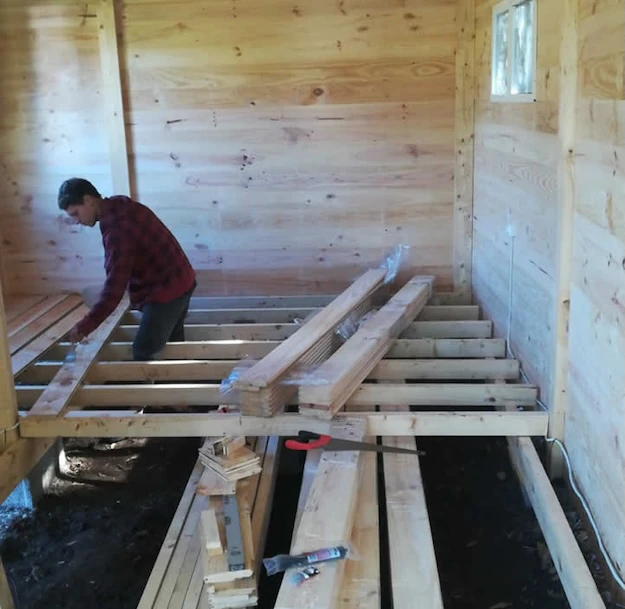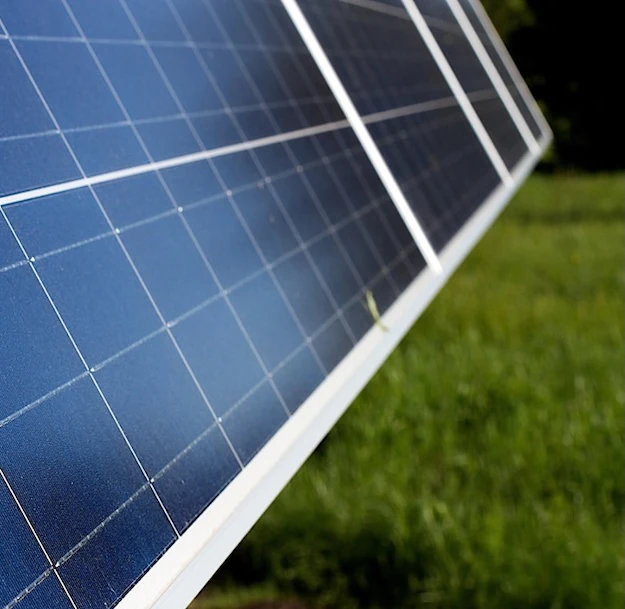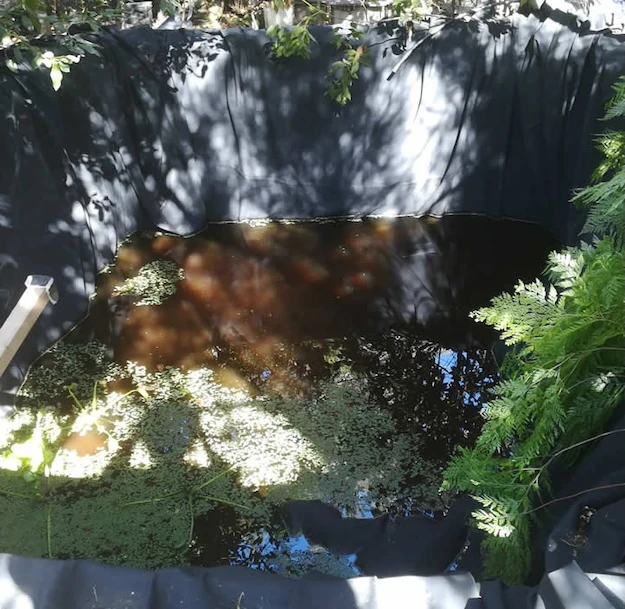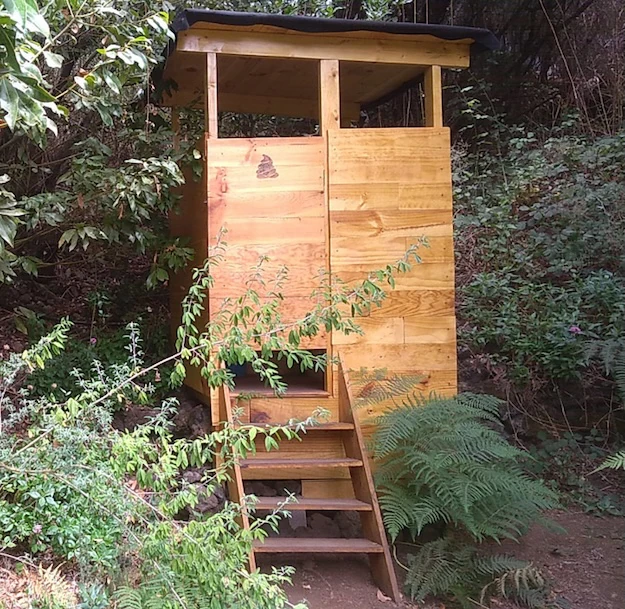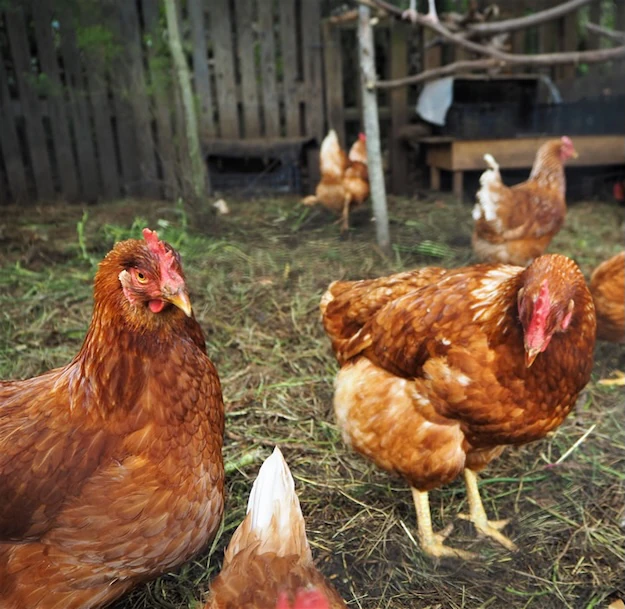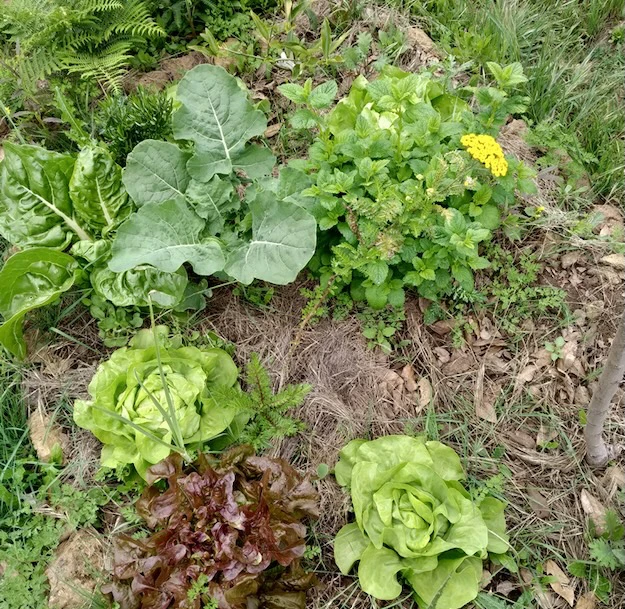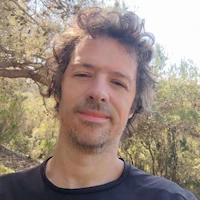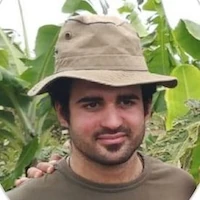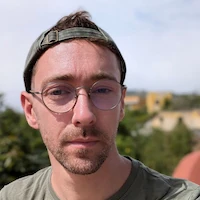-
¿Qué significa Ilatán?
Ilatán es una palabra guanche (pueblo aborigen de Tenerife) que significa "vientos del norte que traen lluvia". Son esenciales para la vida del bosque que es nuestro hogar.
-
Estoy de visita por la isla y me gustaría conocer vuestro proyecto. ¿Cómo puedo llegar hasta allí?
No somos un proyecto abierto al público, así que no acogemos visitas.
Si quieres conocer proyectos de Permacultura en la isla hay muchos otros que sí aceptan visitas, aunque siempre de forma organizada, no espontánea (entiende que hay demasiadas personas interesadas en esto hoy en día como para poder dedicar tiempo a conocer cada una de ellas en cualquier momento, especialmente en Canarias por la gran presión de visitantes todo el año).
-
Me gustaría alojarme ahí haciendo voluntariado. ¿Cómo funcionaría?
En este momento no recibimos voluntarios.
Aunque entendemos que es una oportunidad de conocer personas interesantes que quizás podrían acabar viviendo aquí, nuestra prioridad actual es encontrar personas que ya tengan bastante claro que quieren unirse a una comunidad como esta, y que puedan aportar tanto trabajo como recursos económicos - queremos ser una comunidad con una distribución equitativa de las responsabilidades y derechos, y no una granja unifamiliar con ayudantes temporales.
-
¿Cuántas personas vivís ahí? ¿Hay niños? ¿Aceptáis niños y/o personas mayores?
Por ahora somos sólo 3 adultos (puedes vernos debajo), pero nuestro objetivo es ser una comunidad intergeneracional, ya que reconocemos las aportaciones únicas al grupo que pueden hacer las personas en distintas etapas de su vida.
-
Me interesa unirme pero tengo una mascota. ¿Puede venirse conmigo?
Si te traes tu propio alojamiento móvil, puedes tener las mascotas que quieras dentro, pero no en los alojamientos comunes que tiene disponible la asociación para evitar problemas por alergias y demás. En lo que respecta a tenerlas en exterior, en el caso de perros ten en cuenta que tenemos ya dos perros y, aunque son bastante sociables, integrar a un nuevo miembro a la manada es un proceso complejo.
En el caso de gatos en exterior, debes saber que tanto nuestros perros como los de los terrenos de alrededor son un peligro potencial para su supervivencia (hay gatos salvajes que tienen su territorio aquí y han aprendido cómo moverse por el entorno de forma segura, pero ese proceso de aprendizaje puede ser potencialmente peligroso para él).
-
¿Por qué sois todos hombres?
Simplemente porque a una pareja fundadora se unió otra persona, y casualmente los 3 somos hombres, pero nos encantaría tener más diversidad de géneros, edades y culturas. Y, si te preocupa que éste sea un espacio seguro para mujeres, puedes saber que la masculinidad tóxica no es bienvenida aquí.
-
¿Qué idiomas habláis?
Nuestra lengua común, y local, es el castellano. También tenemos miembros que hablan inglés, francés y japonés de forma fluida, y podemos entender un poco de varios idiomas más.
-
¿Sois autosuficientes en la producción de alimentos? ¿Tenéis el plan de serlo?
Ahora mismo producimos algo de verduras, frutas y huevos, y queremos aumentar la cantidad y variedad de productos vegetales, animales y fúngicos que producimos con la ayuda de nuevos miembros, pero nos tomamos la producción de alimentos y otros recursos como algo que hacemos en la forma y medida que disfrutemos, no como una obligación.
Elegimos, como grupo, no cargarnos con la presión de tener que producir el 100% de nuestras necesidades en el terreno (aunque entendemos que en algún momento del futuro esto puede cambiar en menor o mayor grado).
No obstante, si tú a nivel personal, quieres producir más comida, nuestro terreno es bastante grande así que reservamos un espacio para que cada persona pueda tener su propio huerto en el que plantar lo que necesite, además de los bosques comestibles y huertos de gestión común.
-
Quiero vivir en un lugar 100% libre de alcohol / tabaco / cafeína / azúcar / productos animales / WiFi / microondas / perfumes y cosméticos, etc. ¿Este es un espacio seguro para personas como yo?
No, no podemos ofrecerte eso aquí. Queremos que cada persona sienta que esto es su hogar, así que mientras se respeten las normas de convivencia y las leyes, salvo que haya un problema de adicción que pudiera poner en peligro la paz y prosperidad comunes, cada persona puede hacer lo que quiera en su espacio privado.
-
Soy vegetariano / vegano / cristiano / musulmán / negacionista / activista, etc. ¿Se respetarán mis creencias ahí?
Cada persona es libre de creer o comer lo que quiera, o amar a quien quiera (este es un espacio LGBT+ friendly), así que mientras no esperes que las demás personas compartan tus creencias, prácticas religiosas o estilo de vida, estaremos encantados de respetar tu unicidad - pero una cosa con la que no somos tolerantes es la intolerancia. Por supuesto no tienes que participar en algo en lo que no te sientas cómodo, pero si es un problema para ti que los demás hagan cosas contrarias a tus creencias, es mejor que busques otro lugar más afín.
-
¿Cuánto se espera que trabaje ahí? ¿Cuánto tiempo libre tendré?
Se espera que cada persona, si no tiene un área de responsabilidad propia, contribuya con al menos 10 horas de trabajo a la semana en proyectos comunes - por tanto, queda mucho tiempo libre para pasear, cocinar, charlar, desarrollar proyectos personales, ir a la playa o cualquier otra cosa.
Intentamos todo lo posible encajar las capacidades físicas y motivaciones de cada persona con las necesidades del grupo - con una diversidad de proyectos y necesidades comunes, y de habilidades y experiencias, hay muchas posibilidades para que cada persona en cada momento de su vida pueda aportar al grupo de forma positiva, sin que sea una carga de trabajo desagradable que nadie disfruta haciendo.
-
¿Es necesario tener un coche para vivir ahí? ¿Puedo desplazarme en bicicleta?
No es necesario, pero sí muy recomendable.
Es posible moverse por la isla en transporte público, pero al estar en una zona rural remota esto requiere mucha planificación, paciencia y algún lugar donde pasar la noche si pierdes la última guagua - pasan cada 2 horas aproximadamente por la parada más cercana, que está a unos 15 minutos caminando.
En lo que respecta a bicicletas, las carreteras de nuestra zona (y de la mayoría de la isla) son bastante inclinados, y no están preparados para ciclistas, así que aquí el moverse en bicicleta es más un deporte extremo de riesgo que una forma realista de desplazarse (es más eficiente y seguro caminar).
También es posible desplazarse mediante autostop, pero también requiere paciencia, ya que se ha perdido la costumbre en la isla y no siempre hay buenos lugares para que los coches paren.
-
¿Es complicado el camino de acceso hasta el terreno? ¿Está muy aislado?
No, se puede llegar en coche por una carretera asfaltada, sin necesidad de 4 x 4 (o burro). Estamos (en coche) a 5 minutos de un pueblo y colegios, 10 de una ciudad pequeña, 30 de ciudades grandes, 45 de dos aeropuertos y 60 de la capital.
-
¿Tenéis agua disponible para regar?
Sí, tenemos tanto agua de riego como agua potable. Por ahora (a pesar de los problemas de sequía que afectan a otras partes de la isla y el país) la disponibilidad de agua en nuestra zona es buena.
-
¿Tenéis electricidad suficiente? ¿Con paneles solares?
Sí, los paneles solares son nuestra fuente principal de energía, con la que tenemos suficiente electricidad para usar neveras, lavadora y otras comodidades modernas (aunque no usamos hornos eléctricos, microondas, aire acondicionado u otros dispositivos de alto consumo en días con poco sol). Si es necesario se pueden instalar más paneles y baterías, al unirse otras personas que quieran invertir en ello (pero de momento no tenemos posibilidad de conectarnos al tendido eléctrico).
-
¿Cómo es la conexión a internet?
Tenemos buena recepción móvil con 3G, 4G y 5G en la mayoría del terreno, que en general es suficiente para videollamadas, streaming de películas y demás - pero necesitas un plan de datos móviles, por ahora no disponemos de cable telefónico o fibra óptica.
-
¿Se pueden recibir cartas y paquetes en la finca?
Sí, a pesar de la ubicación remota tenemos un buen servicio postal.
-
¿Hay muchas personas o ruido alrededor?
Hay algunas personas con casas en la zona, especialmente los fines de semana y festivos, y tráfico de coches en la carretera de acceso, pero la mayoría del tiempo este es un sitio muy tranquilo y silencioso.
-
¿Es caro vivir en la isla?
Depende de con qué lo compares, y qué necesidades tengas. Para nosotros, viviendo de forma sencilla pero cómoda, sin salir mucho de casa, los gastos mensuales son inferiores a 200€ por persona adulta para cubrir gastos de comida y desplazamiento - pero puede ser mucho más si te gusta ir a bares, restaurantes, eventos y actividades.
-
¿Cómo es el clima? ¿Hay mucho frío y humedad?
El clima aquí no sigue un patrón de estaciones como en el continente, sino que, dependiendo de la dirección de los vientos, tenemos 2 tipos de tiempo alternándose a lo largo del año: sol, aire seco y temperaturas de alrededor de 25ºC por el día y 10ºC por la noche, o nubes, aire húmedo, lluvia fina y temperaturas de alrededor de 15ºC día y noche. A veces puede hacer más calor, y a veces puede hacer más frío, pero de media suele estar en esos rangos.
En lo que respecta a la incomodidad por humedad y frío (o calor y aire seco, que son igualmente problemáticos, según el momento), es fácil de resolver con infraestructuras sólidas, bien diseñadas y aisladas, con las que disfrutamos de un ambiente cómodo todo el año.
-
¿A cuánta distancia está la playa?
Estamos en una zona montañosa de una isla, así que hay muchas opciones de playas pero todas ellas requieren descender 900 metros de desnivel - las más cercanas están a unos 20 minutos en coche, entre 1 y 2 horas en transporte público y entre 2 y 4 horas caminando.
-
¿Podéis ayudarme a conseguir un empleo / permiso de residencia?
No, lo sentimos, no somos una empresa ni tampoco una asociación de ayuda a personas en situaciones de necesidad, y aunque nos gustaría poder ayudar a las personas en situaciones difíciles que nos escriben, no tenemos la capacidad de hacerlo. Además, las normativas europeas son muy estrictas al respecto.
-
Si vivo ahí me gustaría organizar cursos / eventos / retiros / reuniones / ofrecer terapias alternativas / montar una escuela en la naturaleza / acoger personas / etc. en el terreno. ¿Os parece bien?
No es posible, este no es un proyecto abierto al público. Aquí vivimos varias personas introvertidas y sensibles, y necesitamos que este siga siendo un espacio tranquilo y familiar en el que poder relajarnos, no un lugar de trabajo o un sitio de paso para personas desconocidas.
Por supuesto, si vives aquí es natural y aceptable que quieras invitar a familia o amigos cercanos a visitarte, y no tenemos ningún problema con eso. Pero si tu objetivo es vivir en un terreno donde puedas organizar talleres o eventos para ganarte la vida, ofrecer servicios de cara al público o cualquier otra cosa similar, o quieres tener una política de puertas abiertas en casa, invitar a venir a personas que acabas de conocer, alquilar alojamientos, ofrecer visitas del terreno, etc. entendemos y respetamos que busques un proyecto así, pero no es este lugar. Y si te interesan otros aspectos del proyecto pero no éste, lo sentimos pero no es negociable.
Otra forma de entenderlo es que este lugar ofrece - a incluso las personas más introvertidas y sensibles - la oportunidad de vivir en una comunidad en la naturalezal y tejer una red de apoyo y disfrutar de espacios comunes y momentos para conectar, al mismo tiempo que protegemos el espacio, tranquilidad y libertad de cada persona y familia - parecido a un pequeño pueblo de montaña de hace 100 años, y muy distinto a una comuna hippie, donde todos los espacios son comunes y públicos, y hay gente entrando y saliendo todo el tiempo. Nosotros queremos asegurar que haya espacio, tiempo y tranquilidad suficiente para que quienes compartimos este hogar podamos tener interacciones de calidad (sin la distracción de 10 nuevas personas pasando por aquí cada mes), y que cada persona pueda disfrutar de tanta soledad y silencio como necesite, cuando lo necesite.
-
¿Qué otras oportunidades para generar ingresos tienen las personas que viven ahí?
La opción más habitual es disponer de ingresos pasivos (alquileres, etc.) o ser nómada digital.
Además de eso, viven 1 millón de personas en la isla, y visitan 6 millones de turistas cada año, así que hay muchas oportunidades para ofrecer formaciones, terapias y otros servicios, o incluso vender productos como jabones y cremas, mermeladas y alimentos procesados u objetos de artesanía, y muchos lugares en la isla que acogen esas actividades (ver pregunta anterior).
Eso sí, ten en cuenta que generar ingresos viviendo aquí requiere bastante espíritu emprendedor, porque el desempleo en la isla es muy alto (la mayoría de ofertas de trabajo son en el sector turístico, con condiciones difíciles) y en cualquier caso tener un trabajo a tiempo completo todos los días fuera de aquí no es compatible con vivir en el terreno (aunque entendemos que algunas personas pueden necesitar hacerlo de forma puntual, especialmente en el caso de uno de los padres en familias con niños, tenemos espacio limitado y no podemos reservar un alojamiento para alguien que sólo esté aquí el fin de semana)
-
¿Qué oportunidades hay para socializar y conocer gente, además de las personas que viven en el terreno?
Vivimos en una isla híper-poblada y llena de visitantes, con un clima agradable para estar en exterior todo el año, y pequeña, con desplazamientos generalmente cortos, así que hay una cantidad enorme de eventos y reuniones a los que poder ir, lugares de encuentro o grupos de intereses comunes con los que hacer nuevos amigos, y otras comunidades, proyectos de permacultura y personas con estilos de vida similares al nuestro que podemos presentarte.
-
¿Las normas de convivencia son muy estrictas? ¿Cuánta libertad tienen las personas ahí para hacer lo que quieran?
Tenemos algunas normas básicas de convivencia (no cortar árboles, no usar venenos, no organizar eventos públicos, etc.), pero más allá de eso, cada persona puede hacer lo que quiera en su espacio personal - nos aseguramos de que haya suficiente espacio reservado para cada familia, y suficiente espacio entre alojamientos para mantener la privacidad y tranquilidad.
Nuestra prioridad es la felicidad, tranquilidad y armonía de las personas y el grupo, no el lograr una misión más allá de nuestro terreno, y aceptamos la diversidad de creencias, formas de alimentación, apariencia y expresión personal, hábitos y costumbres, etc. - siempre y cuando tu libertad no entre en conflicto con la de los demás.
-
¿Cuáles son vuestras prácticas espirituales o de desarrollo personal?
Aunque cada persona aquí tiene sus propios métodos, intereses, estudios y prácticas para mantener su salud, en esta fase del proyecto no hemos establecido prácticas grupales en este ámbito ni tenemos la intención de hacerlo - aunque entendemos su valor para la salud y cohesión del grupo, mientras no sean realmente necesarias preferimos mantener el máximo posible de libertad, tiempo y espacio personal.
Pero, por si quieres hacerte una idea del estilo común de quienes estamos aquí ahora, en general valoramos la comunicación no violenta, los apegos seguros, la higiene y el orden físico-psico-emocional (especialmente en los espacios comunes), la espiritualidad basada en la naturaleza e intentar movernos la vida con una perspectiva inspirada en Zhuangzi.
-
¿Cómo tomáis las decisiones? ¿Cuáles son las estructuras de liderazgo?
Nuestra visión es un grupo lo suficientemente pequeño, y que crezca suficientemente lento, como para tomar la mayoría de decisiones de forma orgánica, meritocrática y sociocrática.
Además, la abundancia de espacio y recursos, alojamientos privados, tranquilidad y autonomía en las tareas personales y comunes, reducen mucho los conflictos y reuniones necesarias.
También ayuda el organizar el trabajo (con las personas establecidas a largo plazo) en base a áreas de responsabilidad, para poder avanzar con proyectos de forma ágil, sin tener que acordar y votar todo. No obstante siempre hay decisiones difíciles que tomar y cuestiones en las que no estamos totalmente de acuerdo, así que para esos casos tenemos las asambleas de la asociación y un voto por familia.
-
¿Los terrenos son de vuestra propiedad?
Sí, tenemos la propiedad de los terrenos, compartida entre los miembros inversores, sin alquileres, hipotecas u otro tipo de deudas.
-
¿Por qué, si ya os pertenece el terreno, tenéis un proyecto de comunidad en lugar de vivir sólo con vuestra familia?
A pesar de que vivir en comunidad implica afrontar muchos retos y ceder soberanía, creemos que nuestras vidas serán mejores, más plenas y satisfactorias, si compartimos nuestro hogar - con personas que tengan visiones de vida compatibles - por eso surgió Ilatán.
Entendemos que es una forma de vida muy enriquecedora a nivel personal (aunque el trabajo emocional no siempre sea cómodo), y además nos permite cuidar del terreno de forma más sostenible, tener más animales y producción de alimentos, apoyo mutuo, etc. - como humanos, sabemos que juntos podemos llegar a mucho más que solos.
No necesitamos dinero, mano de obra ni personas a las que convencer de nuestras ideas, ahora mismo buscamos nuevos miembros con los que encajemos lo suficiente como para tener una convivencia agradable y próspera, manteniendo un crecimiento orgánico, relajado y sostenible, sin prisa ni presión, sin superar la capacidad de carga de nuestro ecosistema.
